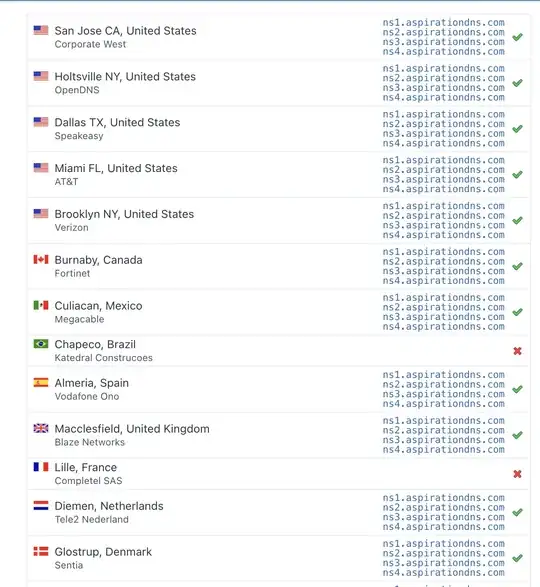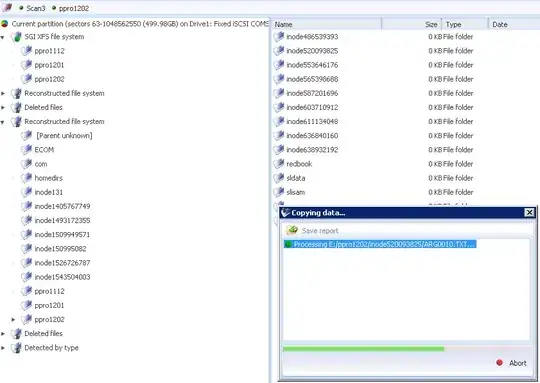Our website hosting provider uses Anycast DNS and has a zone file with a set of nameservers as shown the this screenshot for the zone www.example.com
However the nameservers for the domain are different as shown the the screenshot.
On changing the nameservers of the domain to the same as the ones in the Anycast zone file the DNS caching (propagation) changes show for www.example.com but not so much for example.com even after 45 hours.
DNS Propogation check for www.example.com
DNS Propogation check for example.com
Is this because more time is needed or is there something wrong in the way the nameservers are being setup?



